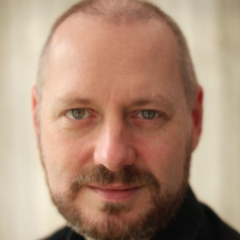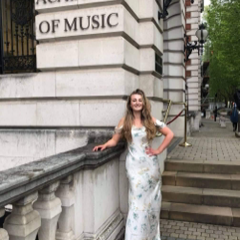What is opera singing?
Opera singing is a classical art form that combines vocal performance with theatrical storytelling. Originating in Italy during the late 16th century, opera blends music, drama, and sometimes dance to create an immersive experience. Unlike other singing styles, opera singing requires the performer to project their voice over an orchestra without amplification, which demands rigorous vocal techniques and discipline. An opera singer must master breath control, posture, resonance, and vocal range to convey the emotional depth and complexity of the character they portray. The power of opera lies in its ability to evoke strong emotions, transporting audiences into the narrative's world through the beauty of its melodies and the intensity of its dramatic elements.
How can I improve my vocal range for opera singing?
Improving vocal range for opera singing involves a combination of vocal exercises, proper technique, and consistent practice. Start with breathing exercises, as breath control is foundational for expanding vocal range and achieving sustained notes. Vocal warm-ups, such as scales and arpeggios, can help stretch your vocal cords gently, increasing flexibility over time. Itâs also essential to work with a professional opera singing tutor who can provide personalised guidance and feedback on your technique. Regular practice, ideally daily, will help in developing muscle memory and vocal stamina. Remember to listen to a diverse range of opera singers to understand different styles and approaches, which can inspire and inform your practice.
Are there opportunities to learn opera singing in London?
London is a vibrant hub for opera singing, offering numerous opportunities for aspiring singers to learn and develop their skills. The city is home to prestigious institutions like the Royal Academy of Music and the Guildhall School of Music & Drama, where students can pursue formal education in opera singing. For those seeking private instruction, London boasts a plethora of experienced opera singing tutors who offer personalised lessons tailored to individual needs. Additionally, the city hosts a range of workshops, masterclasses, and performances that provide valuable learning experiences. Opera enthusiasts can also immerse themselves in the rich cultural scene by attending performances at renowned venues such as the Royal Opera House and the English National Opera.
What are the benefits of online opera singing lessons?
Online opera singing lessons offer several advantages, particularly for those with busy schedules or limited access to local tutors. These lessons provide flexibility, allowing students to learn from the comfort of their homes at times that suit them best. Online platforms enable access to a wider range of tutors, including experts from around the world, offering diverse teaching styles and techniques. Additionally, online lessons often come with digital resources, such as recorded sessions and interactive tools, which can enhance the learning experience. Students benefit from immediate feedback and the convenience of recording their practice sessions for self-review. Furthermore, online lessons can be more cost-effective, with competitive pricing and the elimination of travel expenses.
What cultural landmarks in Manchester are associated with opera singing?
Manchester is a city rich in cultural heritage, with several landmarks associated with opera singing. The Royal Northern College of Music (RNCM) is a prominent institution offering world-class training in opera and vocal studies. It regularly hosts performances and concerts, providing students valuable stage experience. The Manchester Opera House is another key venue known for showcasing a variety of operatic performances and musical theatre productions. For those interested in exploring the cityâs operatic past, the Hallé Orchestra, based at The Bridgewater Hall, often collaborates with opera companies, enhancing the cityâs vibrant music scene. These landmarks contribute to Manchester's reputation as a nurturing ground for opera talent and enthusiasts alike.
What should I expect during my first opera singing lesson?
During your first opera singing lesson, you can expect an introduction to the basic techniques and principles of opera singing. The lesson will likely begin with a discussion about your musical background, goals, and any previous vocal training, allowing the tutor to tailor the session to your needs. Warm-up exercises will be a key focus, helping you to understand the importance of breath control, posture, and vocal placement. Your tutor may introduce simple vocal exercises to assess your current range and identify areas for improvement. Additionally, you might explore basic repertoire, often starting with simpler arias or songs to build confidence. The session provides an opportunity to ask questions and gain insights into the journey of learning opera singing. Remember, consistency and practice are vital, so your tutor will likely discuss a practice schedule to maximise progress.

















